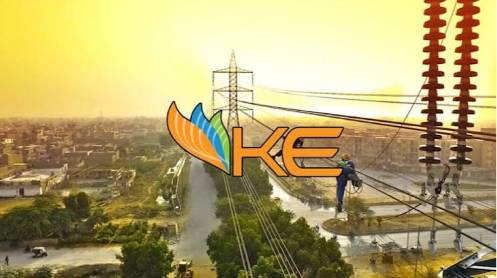Coming months are crucial for Pakistan as the European Union looks into extending its generalised scheme of preferences plus (GSP plus) status for 2024, a scheme from which Pakistan was set to benefit up to December 2023.
The GSP plus allows zero duty on the import of certain items to the EU from designated countries.
In this regard, Friedrich Naumann Foundation for Freedom Pakistan and Policy Research Institute of Market Economy (PRIME) jointly published a timely policy paper.
“Pakistan must start prepping itself for the GSP+ 2023-33 status. For the purpose, it needs to effectively implement the 27 conventions and try to fill the gaps mentioned in the latest assessment report by the European Commission including concerns regarding issues such as honour killing, forced marriages and child labour laws, cancellation of the registration of INGOs, and crimes against journalists (European Commission, 2020)”, recommends the paper.
The very well researched “Pakistan and the European Union under GSP+ Policy Paper”, provides an overview of Pakistan’s trade performance under the scheme and implementation of international conventions.
“In the absence of this preferential status, Pakistan would have to bear an MFN tariff of 12 percent under most traded chapters, and for Pakistan to remain in the scheme for 10 more years, it must ratify and implement five new conventions in addition to the previous 27.”
For a better approach the policy paper recommends that Pakistan should start negotiating with the EU on tariff lines not falling under the GSP+ preferential status for the next agreement.
The paper points out that Pakistan is going through serious economic crisis including energy shortfall, fiscal deficit, balance of payment deficit, and depleting foreign exchange reserves, and for these reasons Pakistan needs the GSP+ status in coming years.
“In case Pakistan loses its preferential GSP+ status, Pakistan Ready-made Garments Manufacturers and Exporters Association, has warned the government of the perilous effects on the textile industry which could lose $3 billion annually in the form of a loss of exports worth $3 billion per year loss in exports,” it notes.
Commenting on Pakistan’s compliance with the GSP+ obligations, the paper said that while some prominent progress was made in the form of legal and institutional reforms, legislation on labour rights did not progress.
In this regard, without naming the manufacturer, the paper says that the largest garment manufacturer in Lahore, supplying to European brands and markets, is in constant dialogue with the EU regarding labour and environmental standards. The EC concluded that women have a limited presence in high-level occupations and less participation in the labour market as compared to men.
Some positive measures under the UN Human Rights Convention included the finalisation of the Federal Domestic Violence Bill in 2019, appointment of the first female chief justice of the High Court and incorporation of the Transgender Person (Protection of Rights) Act 2018.
Commenting on the assessment report of the EC, the EU Election Observer Mission on the electoral process in Pakistan, it found military interference in the election process.
Turning to ILO Labor Rights Conventions the EC finds an increase in child labour and forced labour incidents while according to the Global Slavery Index, Pakistan is one of the top ten countries showing the highest prevalence of modern slavery which refers to exploitation that a person cannot leave because of threats, violence, coercion, abuse of power or deception.
The EC wants Pakistan to carry out more child labour surveys.
UN Conventions on Good Governance notes that as FATF made the initial determination that Pakistan has substantially completed its two action plans and warrants an on-site visit to verify implementation of the reforms, “this could be a plausible development in aiding with the approval of the next GSP+ status”.
Meanwhile the paper stresses that an effective trade policy for Pakistan is going to be an amalgamation of the EU’s demands and the country’s capacity.
“Although Pakistan has been exporting to the EU for several decades now, it has been unable to compete effectively in the region. This has caused Pakistan to miss out on opportunities which could have enabled an increase in its market share as compared to that of its competitors,” it notes.
In order for Pakistan to take better advantage of the GSP+ scheme, the policy paper has made 11 recommendations.
This includes turning to foreign direct investment from Chinese investors with relevant skill and expertise who should be attracted by the Board of Investment (BOI) to set up textile processing plants in special economic zones.
Pakistan’s commercial counsellors located in the EU can facilitate in increasing the demand for Pakistani products in Europe. By targeting more SMEs that are looking to procure from Pakistan and not just targeting a few large buyers within the EU.
During the current energy crisis, power supply to export-led manufacturers should be made mandatory. The crisis impacts the manufacturing sector, which is operating at less than 70 percent of its total capacity at present.
There is an increased demand for clothing and apparel made from man-made fibre in the EU’s market, duties on raw materials (synthetic filament yarn) should be reduced to 0 percent.
Government must reduce customs duties on imported machinery used in the textile sector as Pakistan needs a paradigm shift in the textile sector and needs to increase its market share through advancing production of synthetic garments.
Getting ready for GSP+ 2023-33 status, becomes even more challenging for the coalition government in the present circumstances with political uncertainty and runaway inflatio





